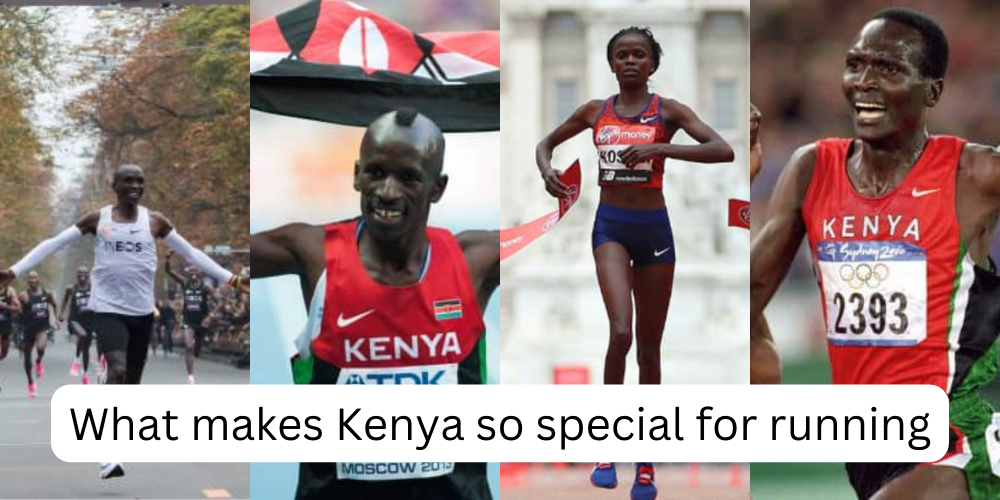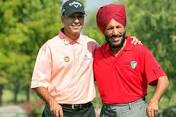It’s a very popular quote that Kenyans are born to run. Kenya runners are a sight to watch while running.
Kenya is a country which is located in East Africa and shares its borders with Tanzania. to the south, Uganda to the west, South Sudan to the northwest, Ethiopia to the north, and Somalia to the east.
In short, it’s a landlocked country in East Africa.
It has a diverse landscape that includes highlands, plains, and coastal regions.
The capital city of Kenya is Nairobi, which is located in the
southern part of the country.
Sugar: A slow poison5 reasons why? I should eat food like medicine

Train your mind: The body will follow
The human body is an incredibly adaptive mechanism that can respond
to the demands placed upon it.
When we engage in physical training, whether it be strength training or
cardiovascular exercise, our bodies adapt to meet the demands of the activity.
For example, if we lift weights regularly, our muscles will respond by getting
stronger and more efficient at performing the movements required for lifting
weights. Similarly, if we engage in regular cardiovascular exercise, our hearts
and lungs will adapt to become more efficient at delivering oxygen to our
muscles. In this way, our bodies behave exactly the way we train them to
, and we can improve our physical abilities and overall health through
consistent, targeted training.

What makes Kenya so special for Running
One reason why running is so popular in Kenya is attributed to its
cultural and economic factors. Running has a long tradition in
certain regions of Kenya, where it is a common mode of
transportation and a way of life.
Many Kenyan runners come
from rural areas where they may have had to run long distances
to attend a school or fetch water, and they may be more likely to
pursue running as a career, as a result, the country’s
high-altitude training camps, which are located in the western part
of the country. These training camps are situated at elevations of
7,000 to 8,000 feet above sea level, which can help to increase the
runners’ oxygen uptake and endurance. The thin air at high altitudes
stimulates the body to produce more red blood cells, which
transport oxygen to the muscles. This increase in oxygen uptake
can help to improve athletic performance, particularly in endurance
events like long-distance running. As mentioned earlier body is an
intelligent mechanism.
Economic Success Through Running?
Additionally, running can
provide a path to economic success for many Kenyans, who may
see it as a way to escape poverty and improve their lives.
In summary, Kenya’s high-altitude training camps, cultural factors,
and economic factors all contribute to the country’s success in
long-distance running. While genetics may play a role in the
success of Kenyan runners, environmental and cultural factors
are also important considerations.
It’s all in the genes.
The success of Kenyan runners in long-distance running has been attributed to a
variety of factors, including genetic factors, environmental factors,
and cultural factors.
In terms of genetic factors, some researchers have suggested that Kenyan
runners may have genetic variants that make them well-suited for
long-distance running. For example, a study published
in the Journal of Applied Physiology in 2005 found that elite Kenyan distance
runners had a higher percentage of slow-twitch muscle fibres than
elite runners from other countries, which could give them an advantage
in endurance events. However, it’s important to note that genetic factors
alone cannot fully explain the success of Kenyan runners.
Environmental factors may also play a role in the success of Kenyan runners.
For example, Kenya’s high-altitude training camps may help to increase the
runners’ oxygen uptake and endurance, and the country’s warm climate may
make it easier for them to train year-round.
running as a career as a result.
It ain’t just genes. Skill Matters too.

Let’s quote the classic example of Milkha Singh the Flying Sikh and his own son
Jeev Milkha Singh.
Milkha Singh (20 November 1929 – 18 June 2021) also known as “The Flying Sikh“, was an Indian track and field sprinter.
He was introduced to running while serving in the Indian Army.
He is the only athlete to win gold at 400 metres at the Asian Games as well as the Commonwealth Games and not to mention the countless times he has won huge accolades for India.
Jeev Milkha Singh (born 15 December 1971) is an Indian professional golfer who became the first player from India to join the European Tour in 1998.
If Genes are the only reason why Kenyans are good runners for centuries to follow how
Come Jeev Milkha Singh the son of Great Flying Sikh plays Golf and not sprint.
Does he lack the running genes like his father?
It’s possible that Milkha Singh’s son inherited a different set of genes that make him
well-suited for golf, despite his father’s athletic abilities in running.
While genetics can play a role in athletic abilities, it’s important to note that
other factors like training, nutrition, and environmental factors can also impact performance in sports.
DNA analysis can provide insights into genetic factors that may impact athletic
abilities, including factors like muscle fibre type and oxygen uptake.
However, it’s not a guarantee of success in a particular sport.
It’s possible for someone to have the genetic makeup that makes them
well-suited for a certain sport but not enjoy or excel in it due to
other factors like personal interests or access to resources.
In the case of Milkha Singh’s son being a golfer, it’s possible that he inherited
a different set of genes that make him well-suited for the sport, such as a
a genetic variant that enhances hand-eye coordination or a tendency towards
slower-twitch muscle fibres that are better suited for endurance-based
activities like golf. However, it’s also likely that he received coaching, training,
and access to resources that helped him excel in golf, regardless of his genetic
makeup.
In summary, while genetics can play a role in athletic abilities, other factors like training, nutrition, and environmental factors can also impact performance in sports.

Nepotism has no place in sports.
DNA analysis can provide insights into genetic factors that may impact athletic abilities, but it’s not a guarantee of success in a particular sport.
The fact of the matter is you may have the genetic makeup to be a good runner.
But you may not like to run. You probably like to swim.
You are free to do what your heart desires.
It is not a foolproof guarantee if you have the genetic makeup for being a good runner you will become one without training and discipline.
Nobody is born to run.
You may be strong enough to do it you still need to train your body and mind to achieve your place in sports. Nepotism has no place in sports. Even Sachin Tendulkar’s son has to work hard to be a good cricketer.

